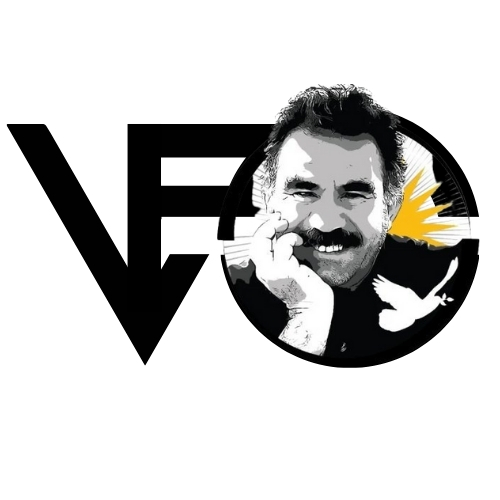Kurds and their friends have been protesting outside the Agora Building in Strasbourg, which houses the Council of Europe’s Committee for the Prevention of Torture (CPT). They hope to persuade the CPT to say whether or not they met with Abdullah Öcalan when they visited Turkey in September, and to get them to tell his lawyers what they know about his condition; and they are also calling on the CPT and the Council of Europe to put pressure on Turkey to comply with international law and allow Öcalan and the other three men isolated in İmralı prison to be visited by their lawyers. This week’s protest was prompted by the claims made to Öcalan’s lawyers that Öcalan had not met with the CPT delegation, which would mean that he has had no contact with the outside word since a very brief phone call in March 2021. In any case, the CPT are refusing to give any information as to his condition.
So, protestors will be out in force this Wednesday, Thursday, and Friday, with groups coming from different places. On Wednesday, people came from Kurdish communities in SwitzerlandTheir message was spelt out clearly in three large banners.

The gathered protestors – and a much wider TV audience – were addressed by Ramzi Kartal, co-president of Kongra-Gel (the Kurdish People’s Congress), by the exiled Peoples’ Democratic Party (HDP) politicians, Ali Şimşek and Lezgin Botan, and by Ömer Güneş, one of Öcalan’s lawyers.
They also heard from Ögmundur Jónasson, the former Interior Minister of Iceland who is a representative to the Parliamentary Assembly of the Council of Europe. He told the crowd, which also included other exiled Kurdish politicians, “What you are doing here is extremely important, and I sometimes have cited a human rights activist I met in Ahmed – Diyarbakir – some years ago. He said ‘don’t worry about us. we will never give up, but worry about yourselves, worry about the humiliation of the world, the humiliation of silence in Europe.’ So, I thank you for waking us up.”

The last major demonstration in front of the Council of Europe, in October, called on the Council to take action in support of Öcalan’s right to hope: that is the right to the possibility of release. Life sentences without parole, by denying hope, are considered a form of torture; however, since this sentence was given to Öcalan, it has become standard practice in Turkish ‘terrorism’ cases. Öcalan sued the Turkish government over his loss of the right to hope, and in 2014, after many years, the court found in his favour. It then took the Council of Europe’s Committee of Ministers another seven years to act on this decision. In December 2021 they asked the Turkish government to inform them by September 2022 what they were doing to comply with the legal standards. Turkey’s response, which didn’t arrive till October, made it clear that they had no intention of changing their treatment of prisoners. This blatant disregard for the court decision ought to be followed up by the Committee of Minister. They are meeting this week, but the Öcalan case is not on their agenda.
The protection of human rights is the raison d’être of the Council of Europe, but when it comes to the Kurds, the council as a whole does not want to wake up.

